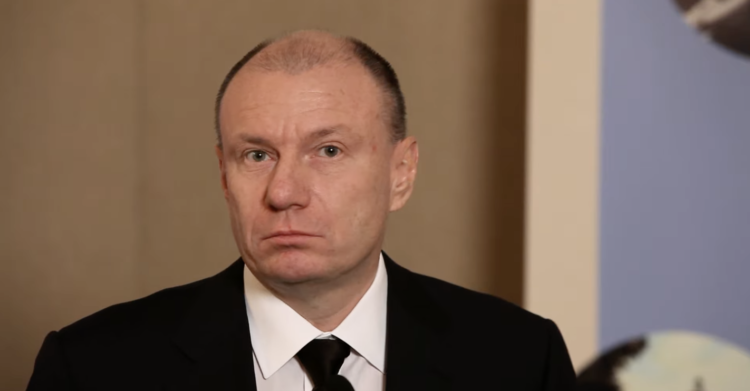By Gavin Mackintosh-
Oxford University accepted more than £3m in donations from a billionaire Putin “crony” , it has been revealed.
Vladimir Potanin(pictured) is one of Russia’s richest men, with a fortune of over $23bn, and served as the country’s deputy prime minister in the 1990s. He is now president of one of the world’s largest metal producers, Norilsk Nickel. Potanin is the second wealthiest man in Russia, according to the Bloomberg Billionaires Index. His investments span mining, metals, energy, finance, retail and real estate. Potanin briefly served as the First Deputy Prime Minister of Russia in 1996-97, under the presidency of Boris Yeltsin.
The oligarch’s foundation donated a further $150,000 to an Oxford University fellowship scheme named in his honour. Responding to openDemocracy’s findings, Labour MP Margaret Hodge called on Oxford to “sever all ties with Potanin” and donate the money he gave to an anti-corruption organisation.
Last week, Potanin stepped down from the board of the Solomon R. Guggenheim Museum in New York “effective immediately”, the institution said in a statement on 2 March. Potanin funded numerous Guggenheim exhibitions of artists from Russia and beyond during his time as a trustee, including the current show of the celebrated abstract pioneer Wassily Kandinsky, who was born in Moscow but spent his childhood in Odessa, Ukraine.
Speaking in Parliament on Tuesday, Hodge named Potanin among a list of oligarchs “who are involved in companies of strategic importance to the Russian economy” and who are “cronies of Putin, who are propping him up and allowing him to create havoc in Europe”.
“They have made their money only because they are close to the Kremlin,” she said, “and they sustain their wealth only because they remain close to the Kremlin.”
On Wednesday, it was announced that Potanin had stepped down as a trustee at New York’s Guggenheim Museum. The museum did not say why he was leaving, but a statement said the Guggenheim “strongly condemns” the Russian invasion of Ukraine.
Potanin’s resignation came less than 24 hours after US President Joe Biden’s State of the Union address on 1 March, in which he vowed that the Justice Department would “assemble a dedicated task force to go after the crimes of Russian oligarchs”
The Vladimir Potanin Foundation’s $150,000 donation to the Oxford fellowship was revealed following a Freedom of Information (FOI) request by openDemocracy. The money was used to fund a scheme at Oxford’s Saïd Business School, under which fellowships are awarded to “professionals working in Russia on projects addressing social challenges”.
They have made their money only because they are close to the Kremlin, and they sustain their wealth only because they remain close to the Kremlin
Speaking to openDemocracy, Margaret Hodge said: “If it is indeed true that Potanin has donated to Oxford University, I fully expect this venerable institution to do the right thing.
“Oxford should sever all ties with Potanin, call time on the scholarship in his name, and – instead of returning the money – why not donate it to an important anti-corruption campaigning organisation, like Spotlight on Corruption?”
Responding to questions from openDemocracy, Oxford University said it had also received a research grant from another Russian organisation that was worth more than £10,000.
Since the Russian invasion of Ukraine, the UK has sanctioned 11 oligarchs with close links to the Kremlin. But despite calls for more restrictions, the government has so far been unable to sanction more individuals as it has struggled to build a case against them.
A spokesperson for Oxford’s Saïd Business School said: “We accepted a $150,000 grant from The Vladimir Potanin Foundation in 2017 for 15 Russian charity workers, selected by us, to attend our Oxford Social Finance Programme between 2017 and 2019. The grant process went through the University’s robust approval process and the partnership ended in 2019.
“The focus of the programme is to improve the social impact and philanthropic work of charities and non-government organisations (NGOs) across the world. As a global business school with students and alumni from across the world, we have been deeply saddened at events happening in Ukraine and hope a peaceful outcome is soon reached.”




